Sleep hygiene tips are essential for ensuring that you get a good night’s sleep, which is vital for your health and well-being. Many of us struggle with achieving restful sleep, but by adopting effective sleep hygiene practices, you can significantly improve the quality of your rest. Creating better sleep habits plays a crucial role to improve sleep quality and can have a profound impact on your overall health. In this article, we’ll explore 10 sleep hygiene tips that can help you sleep better, feel more rested, and improve your overall well-being.
1. Establish a Consistent Sleep Schedule
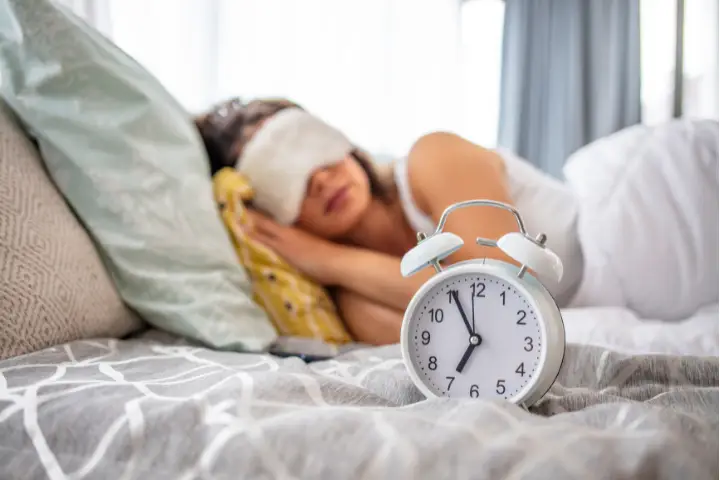
One of the most effective sleep hygiene tips is sticking to a regular sleep schedule. Your body’s internal clock, or circadian rhythm, thrives on consistency. By going to bed and waking up at the same time every day, even on weekends, you train your body to expect sleep at the same time. This helps you fall asleep faster and wake up feeling more refreshed. Creating a consistent sleep schedule is one of the simplest but most effective sleep hygiene tips for better sleep habits. It helps your body synchronize its natural rhythms, improving your ability to get quality rest.
2. Create a Relaxing Bedtime Routine

A relaxing bedtime routine can signal your body that it’s time to wind down for the night. Instead of rushing into bed or working right up until sleep, take time to relax and prepare your mind for rest. This might include reading a book, practicing light yoga or stretching, or even taking a warm bath. A pre-bedtime ritual helps shift your mind into relaxation mode, making it easier to fall asleep. Incorporating a soothing routine into your evening is one of the healthy sleep practices that ensures your body knows it’s time to wind down and fall asleep with ease.
3. Optimize Your Sleep Environment
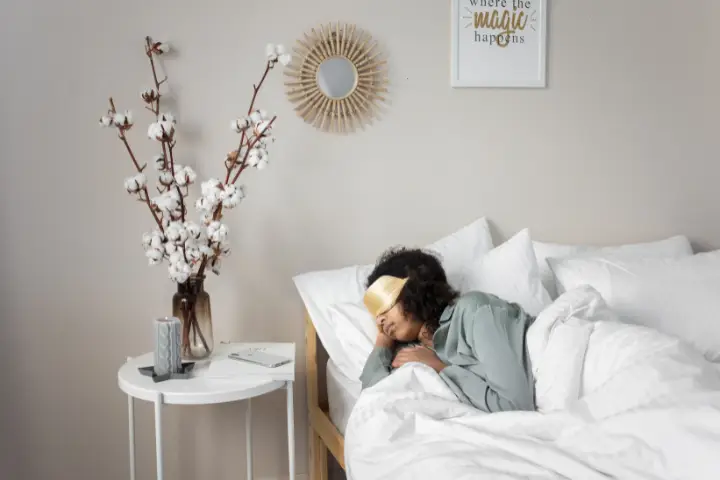
Your sleep environment can make or break your sleep hygiene. For restful sleep, your bedroom should be a sanctuary of peace and calm. Keep the room dark, quiet, and cool to create the ideal conditions for sleep. Invest in blackout curtains to block outside light, or use a sleep mask if needed. Sound machines or earplugs can help block out disruptive noises, ensuring that you stay asleep undisturbed throughout the night. Additionally, choosing the right mattress and pillows to support your body is key to maintaining better sleep habits. A comfortable environment will not only help you sleep faster but also improve sleep quality for more restful nights.
4. Limit Screen Time Before Bed

In today’s digital world, many people spend their evenings on screens—checking emails, scrolling through social media, or watching TV. However, the blue light emitted by screens can interfere with melatonin production, the hormone that regulates sleep. To improve sleep hygiene, try to avoid screens at least an hour before bedtime. Instead, engage in relaxing activities that promote sleep, such as reading a book or practicing mindfulness. Reducing screen exposure can help you develop better sleep habits and enhance sleep quality, ensuring that you fall asleep quickly and deeply without distractions.
5. Mind Your Food and Drink Choices

What you eat and drink before bed can significantly impact your sleep. Avoid large meals and heavy, spicy foods close to bedtime, as they can cause discomfort and disrupt your ability to fall asleep. Similarly, caffeine and alcohol are stimulants that can prevent you from reaching deep sleep stages. Instead, opt for lighter snacks like a banana or a handful of almonds, which are known to promote relaxation. Drinking a cup of chamomile tea or warm milk before bed can also encourage sleep. These are just a few healthy sleep practices to help improve sleep quality and ensure that you feel rested and rejuvenated in the morning.
6. Exercise Regularly, But Not Right Before Bed

Regular physical activity is essential for maintaining good health, and it also plays a key role in improving sleep. Exercise helps regulate your body’s sleep-wake cycle, making it easier to fall asleep and stay asleep. However, exercising too close to bedtime can leave you feeling overly energized, which may hinder your ability to fall asleep. Aim to get regular exercise during the day, ideally finishing your workout at least three hours before bedtime. This will help you enjoy the full benefits of better sleep habits and improve sleep quality, as your body is more likely to relax naturally after physical activity.
7. Manage Stress Effectively

Stress and anxiety are common culprits that prevent many people from getting restful sleep. If your mind is racing with worries or stress, it can be difficult to quiet your thoughts and fall asleep. Incorporating stress management techniques into your routine can help prepare your mind for relaxation. Activities such as meditation, deep breathing exercises, or even journaling can help reduce the mental clutter that interferes with your sleep. Managing stress is one of the most beneficial healthy sleep practices to improve your overall sleep hygiene and promote better sleep habits.
8. Limit Naps During the Day

While naps can be rejuvenating, taking long naps or napping too late in the day can interfere with your nighttime sleep. If you need a nap, keep it brief—20 to 30 minutes—and try to nap earlier in the day. Napping too late or for too long can reduce your sleep drive at night, making it more difficult to fall asleep at your regular bedtime. Limiting naps is a simple yet effective way to maintain better sleep habits and ensure that your sleep schedule remains undisturbed.
9. Be Careful of Your Sleep Position

The way you sleep can also affect the quality of your rest. Sleeping in an awkward position can lead to discomfort or pain, which may cause you to wake up during the night. For optimal sleep, make sure your spine is properly aligned, and invest in a supportive pillow and mattress. You might also experiment with different sleeping positions—such as sleeping on your back or side—to find what works best for you. By being mindful of your sleep position, you can enhance sleep hygiene and enjoy deeper, uninterrupted sleep.
10. Avoid Stimulants Before Bed

Stimulants such as caffeine, nicotine, and certain medications can keep you awake long after you’ve consumed them. To improve sleep quality, avoid consuming these substances for at least 4 to 6 hours before bedtime. Instead of reaching for a cup of coffee or an energy drink, opt for a warm, non-caffeinated beverage like herbal tea. By avoiding stimulants in the evening, you’re helping your body wind down naturally, ensuring that you can follow healthy sleep practices and enjoy more restful sleep.
In short
By adopting these healthy sleep practices, you can improve your sleep hygiene and make a lasting difference in your quality of rest. Simple habits like creating a relaxing bedtime routine, optimizing your sleep environment, and managing stress can contribute to better sleep habits and improve sleep quality over time. With patience and consistency, you can transform your sleep routine and experience the full benefits of a restful night’s sleep. Remember, good sleep is not a luxury—it’s a necessity for a healthy, balanced life.

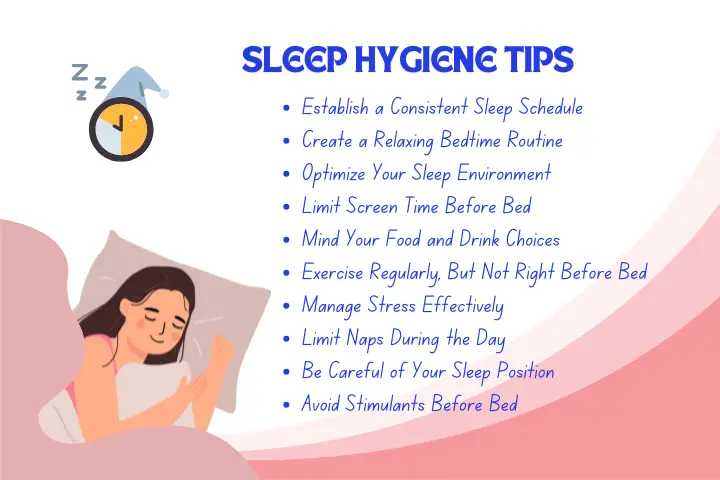
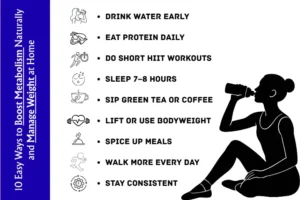







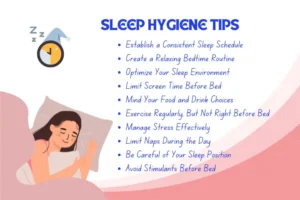



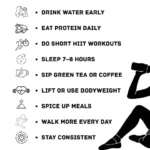





2 Responses
I’ve been absent for some time, but now I remember why I used to love this website. Thanks , I¦ll try and check back more often. How frequently you update your site?
Actually, it takes time to prepare content, its graphics, and seo. I try to post every week but sometimes it gets late.